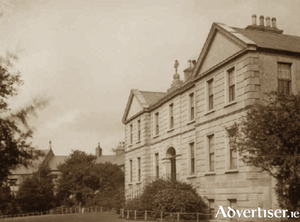Search Results for 'chief secretary'
20 results found.
‘The peasantry are the foundation of the world - the upper classes get worn out’
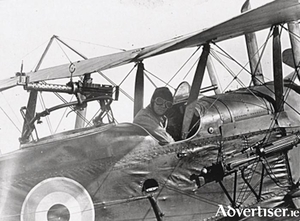
In the decades preceding the 1916 Rising, an extraordinary revolution had already taken place in rural Ireland. The British government had lost its patience with Irish landlords who owned 95 per cent of the land of Ireland (100 percent of county Galway was landlord owned), and had largely squandered their wealth leaving themselves vulnerable to poor harvests, successive seasons of bad weather, and an increasingly impoverished tenantry.
The Model School
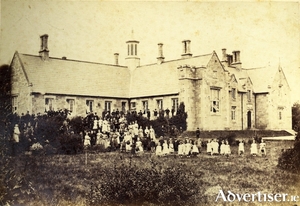
The Model School on Newcastle Road was built in 1849/50 for a cost of £2,533 plus £800 for the furniture. It was one of a series of Model Schools built around that time and was the only one constructed under budget. It opened in July 1852, 170 years ago this month. It catered for Protestant children.
THOUGHT THE GLASS DARKLY
In late November 1623, John Donne, Dean of St Paul’s Cathedral, fell ill, probably of typhus, or ‘spotted fever’, as it was called in his day. He was in his early 50s, a widower since the death of his beloved wife Anne in 1617, and the father of four daughters and a son, who carried his father’s name.
Cavendish Lane and Spencer Street – Castlebar street names
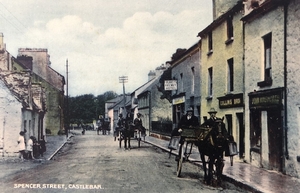
Anyone who has watched 'The Duchess', the 2008 film adaptation of Amanda Foreman's excellent biography of Georgiana Cavendish, Duchess of Devonshire, will be aware of the sad parallels between the life of Georgiana and Lady Diana Spencer. Georgiana's maiden name was Spencer; she was Diana's four times great aunt. Spencer Street, Spencer Park and the former Spencer Park House took their names from the Spencer family. In 1781, Lady Lavinia Bingham, daughter of Charles Bingham, 1st Earl of Lucan, married George Spencer, 2nd Earl Spencer. George was Georgiana's brother.
The attack on Clifden, ‘something of this sort…’
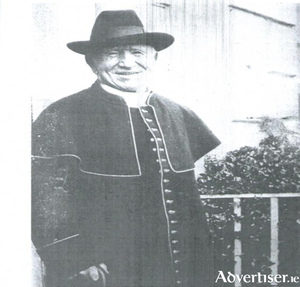
Under the heading ‘Panic in the town last night’ The Connacht Tribune told the story of the attack on Clifden on March 19 1921: ‘Following the shooting of RIC Constable Reynolds, and the wounding of Constable Sweeney (who was to die from his wounds some hours later), at Clifden last night, panic reigned in the town and nine of the principal houses were burned.
Corruption, abuse of power and mismanagement in public office
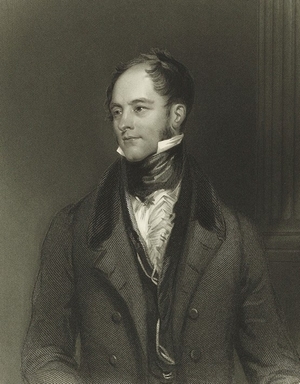
One does not have to dig very deep into the archives to find evidence of wholescale corruption, pervasive nepotism, and general theft of public monies by public representatives and officials in nineteenth-century Mayo.
The RIC in Galway
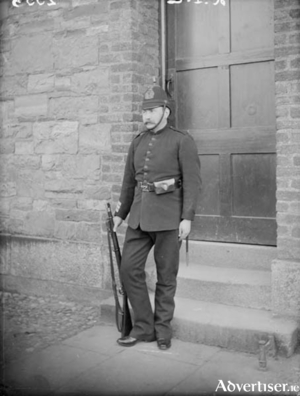
In the 18th century, attempts at maintaining law and order in Galway were poor. Occasional groups of civilian vigilantes were set up, but they were not very successful. Then, 200 years ago, in 1822, the Chief Secretary Henry Goulburn set up the Irish Constabulary. In 1824, Edward Blake from Mary Street became the first Catholic in Ireland to become a constable. In 1825, a decision was made to bring police to Galway. Some time later a barracks was set up in Abbeygate Street, then one in Eyre Square (where Giblin’s Hotel was situated later), and one in Dominick Street where An Tobar Nua is today. The force gradually became very organized, was successful in dealing with crime, and so Queen Victoria granted it the term ‘Royal’.
How Galway lost the Clifden railway
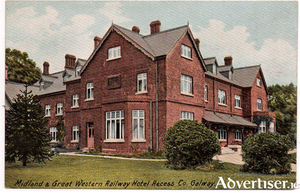
It is probable that if the coastal route had been chosen for the Clifden railway, rather than the Oughterard/ Maam Cross way, the line would still be viable today. The idea of the so-called ‘Balfour lines’, proposed by an enlightened chief secretary for Ireland, Arthur J Balfour, and given the go-ahead in the 1889 Light Railways (Ireland) Act, was to give far-flung towns and communities access to bigger markets, and to grasp the benefits of employment and opportunities.
Mr Tuke’s Fund
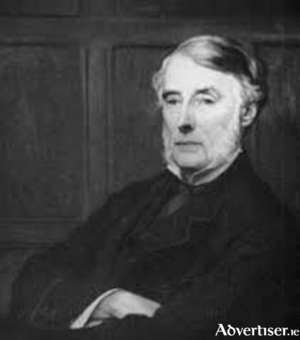
One of the reasons for the success of Mr Tuke’s Fund, which sponsored emigrants to America and Canada in the 1880s, was that as far as possible Tuke personally interviewed those wishing to go. He insisted that only families with at least one member capable of hard, physical work could participate. Proper clothes and money were provided to start their new life, and arrangements made in advance where they would stay and find work.
